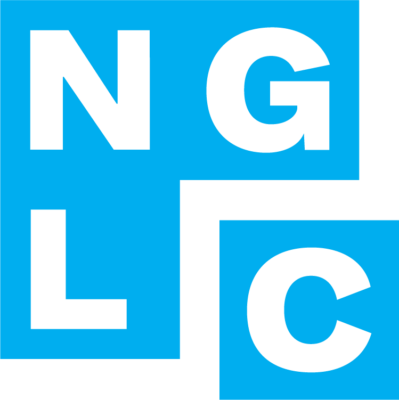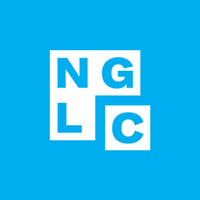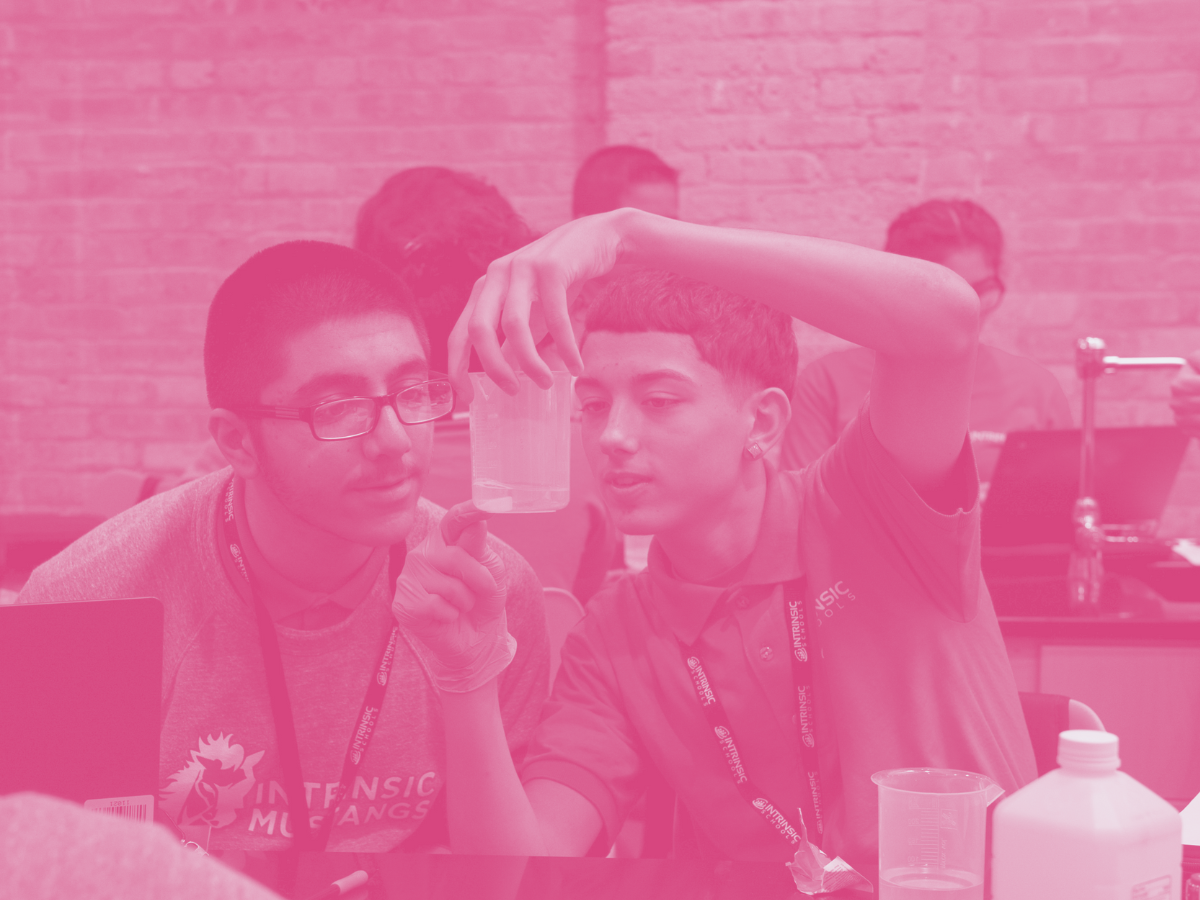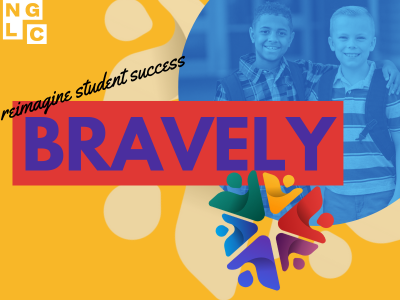New Designs for School
PRESS RELEASE: NGLC Announces $5.4 Million in Latest Grants Supporting Breakthrough Models for College Readiness and Completion
Topics

We’ve all had the experience of truly purposeful, authentic learning and know how valuable it is. Educators are taking the best of what we know about learning, student support, effective instruction, and interpersonal skill-building to completely reimagine schools so that students experience that kind of purposeful learning all day, every day.
NGLC grants support blended, personalized learning models—20 secondary schools and 10 postsecondary degree programs in all
October 17, 2012 (Washington, DC) – Next Generation Learning Challenges (NGLC), an initiative dedicated to improving college readiness and completion, today announced grants totaling $5.4 million for 13 new models of personalized, blended learning at the secondary and postsecondary levels.
Marking the close of its third wave of investments focused on comprehensive, breakthrough models for improving college readiness and completion, NGLC has now provided $30 million in support of 78 secondary and postsecondary education organizations since its inception in 2010. NGLC’s Wave III investments target institutions and organizations launching new breakthrough models that incorporate technology to accelerate and enhance new, personalized, competency-based, blended programs, supported by business models that can sustain expansion.
“NGLC’s thirty Wave III grantees are the new-model builders. They are designing schools and college-level learning pathways that encourage access, persistence, and completion in learning environments that marry technology and close attention to students’ individual needs,” said Andrew Calkins, Deputy Director of NGLC. “They are striving to accelerate and deepen learning for today’s students, who have high expectations for engagement and personalization.”
NGLC’s purpose in funding the new models is to expand educational innovation and to inform the development of other new models. NGLC seeks to ensure that the models developed catalyze change among practitioners, policy makers, researchers, and innovators.
“The response to NGLC’s new-model challenge is game changing, in terms of the ideas as well as the potential impact on learners,” according to Diana Oblinger, President and CEO of EDUCAUSE, which leads the Next Generation Learning Challenges. “While education works well for many, it doesn’t for everyone. We hope these new models will allow more students to be successful in college, career, and society.” Information about the grantees and the models they will build can be found at NGLC’s newly redesigned website, www.nextgenlearning.org.
Grantees Developing Breakthrough Models for College Readiness are creating new, whole-school solutions to improve student performance across secondary education. The seven new grantees will receive $150,000 pre-launch planning grants, and each grantee will be eligible for up to $300,000 in one-to-one matching funds. They include the following:
Aspire Public Schools (Memphis, TN): The nationally-recognized charter management organization operating 34 high-performing schools in California intends to open two K-8 blended learning schools in Memphis as part of Tennessee’s statewide turnaround initiative, the Achievement School District. CODE Aspire is Aspire Public Schools' answer to NGLC’s new-model challenge: a K-8 blended learning school, serving 564 students, offering a rich STEM-focused education, individualized learning, and a school-wide emphasis on computer coding to help build a wide range of cognitive and non-cognitive skills.
Fayette County Public Schools (Lexington, KY): New STEAM (Science, Technology, Engineering, Arts, and Math) Academy, a groundbreaking partnership of the school district and the University of Kentucky, will dramatically improve college readiness, maximize student learning, and close achievement gaps using mastery learning, personalized instruction, internships and dual/college credit opportunities to ensure accelerated growth in skills and knowledge staked to the Common Core standards.
Foundations College Prep (Chicago, IL): Foundations, a new charter management organization, will be opening a grade 6-12 early-college academy in Chicago in Fall 2013. The school’s commitment is to build a solid foundation of college-going knowledge and skills among its high-poverty students and to create a learning environment that simulates postsecondary education in students’ later years. Among other innovations, Foundations is creating an entirely new framework for adult roles in the schools and is training teachers extensively in blended instruction.
Generation Schools Network (Denver, CO): A nationally recognized nonprofit dedicated to whole-school innovation in urban public schools, GSN has been recognized as one of the most cost-effective and promising school-redesign models in the country. GSN’s model dramatically increases learning time, professional development and college/career guidance without increasing costs through implementing structural reforms and blended learning. The organization has partnered with Denver Public Schools to turn around the persistently failing West Denver High School.
Intrinsic Schools (Chicago, IL): A new charter management organization plans to open its first 6-12th grade school in Chicago in 2013. Intrinsic will move its students fluidly between adaptive digital content, multimedia content, small group instruction, group projects, and independent work. Students will learn in rotating, mixed ability groups for some activities and also receive targeted instruction at their level. As students successfully demonstrate independence, they will be given increasing ownership over their learning.
Horry County Public Schools - Whittemore Park Middle School (Myrtle Beach, SC): The school district is working to turn around a high-poverty middle school using the iCAN model – a completely redesigned new school model focused on a blended core academic curriculum and a wide-ranging system of personalized supports to ensure college and career readiness for all students.
Matchbook Learning (Tennessee): A national nonprofit school turnaround management organization, Matchbook seeks to reinvent a middle school in Tennessee’s Achievement School District with its teacher-centric, blended turnaround school model. An earlier version of Matchbook’s model has generated promising results in a turnaround school in Detroit.
Grantees Focused on Breakthrough Models for College Completion are developing new models for online and blended programs that significantly improve postsecondary access, persistence, completion, and affordability, without compromising the quality of learning outcomes. Applicants were eligible for awards up to $1 million.
Kentucky Community and Technical College System (Versailles County, KY; $1,000,000): KCTCS will convert its existing, competency-based Learn-on-Demand model to support an associate’s degree in Arts/Science-General Studies, enabling college completion rates to increase while reducing time to completion and increasing affordability.
Board of Regents of the University System of Georgia (Atlanta, GA; $1,000,000): In partnership with Columbus State University, the USG will develop and offer an accelerated, online Bachelor of Arts degree with a strong service-learning component. Features will include multiple entry points for students including dual credit in high school, prior learning assessment, the College-Level Examination Program (CLEP), and transfer of core courses from 60 state institutions.
Altius Education (San Francisco, CA; $300,000): Altius seeks to provide affordable, scalable access to quality college education by creating “America’s Transfer College.” Ivy Bridge College will leverage streamlined transfer, a robust student support model, proven pedagogical methods, and groundbreaking learning technologies. Altius will use its NGLC grant to put all of Ivy Bridge College’s courses on the personalized learning platform, Helix.
Ameritas College Educational Services (Irvine, CA; $250,000): A new joint venture of Brandman University (part of the Chapman University System) and University Ventures Fund, Ameritas will offer affordable, high-quality Bachelor of Arts degree programs delivered simultaneously with English language instruction for the millions of working Hispanic adults in this country for whom cost and language proficiency are major barriers to a college degree.
University of Washington (Seattle, WA; $884,000): UW will provide a transformational online undergraduate degree-completion program at a lower cost for Americans who have earned some college credits and want to complete a baccalaureate degree, initially in humanities and social sciences, but need an online format due to other life commitments. The UW will use MOOCs to deliver the courses.
Rio Salado College (Phoenix, AZ; $970,000): Rio Salado, a national pioneer in blended and online learning services, will build on its success in developing high-quality, low-cost, accessible educational opportunities to create “All Roads Lead to Student Success,” a purposeful expansion of pathways for targeted students in early college programs, educational service partnerships, and those seeking to obtain credit for prior learning.
# # #
Next Generation Learning Challenges (NGLC) accelerates educational innovation through applied technology to dramatically improve college readiness and completion in the United States. This multi-year program provides investment capital to expand the use of proven and emerging learning technologies, collects and shares evidence of what works, and fosters innovation and adoption of solutions which will dramatically improve the quality of learning in the United States, particularly for low-income students and students of color. NGLC is managed by EDUCAUSE in partnership with the League for Innovation in the Community College, the Council of Chief State School Officers, and the International Association for K-12 Online Learning. Funding for Wave III was provided by the Bill & Melinda Gates Foundation. (www.nextgenlearning.org)




